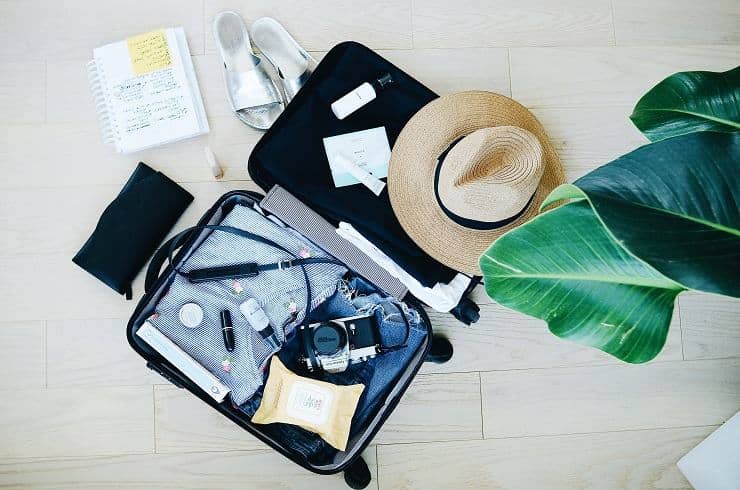Traveling the world is an exciting adventure, but tourists are often prime targets for scammers. From pickpockets in crowded streets to overcharging taxi drivers, there are countless ways scammers try to take advantage of unsuspecting travelers. Being aware of these scams and knowing how to avoid them can help you stay safe and enjoy a stress-free trip.
1. The Overpriced Taxi Scam
One of the most common scams involves taxi drivers charging exorbitant fares, either by refusing to use the meter or taking unnecessarily long routes.
How to Avoid It:
✔ Always agree on a price or ensure the meter is running before starting the ride.
✔ Use official taxi services or rideshare apps like Uber or Lyft.
✔ Research standard fares in your destination to avoid overpaying.
2. The Fake Police Officer
Some scammers pose as police officers, accusing tourists of breaking the law and demanding on-the-spot fines.
How to Avoid It:
✔ Ask for official identification before handing over any documents or money.
✔ Never give your passport to a stranger unless you are at a police station.
✔ If unsure, insist on going to the nearest police station before complying.
3. The “Free” Bracelet or Rose Scam
A scammer approaches you with a friendly gesture, such as offering a bracelet or flower as a “gift.” Once you accept, they demand payment and refuse to take it back.
How to Avoid It:
✔ Politely refuse free items from strangers.
✔ Walk away if someone insists on giving you a gift.
✔ Be cautious in tourist-heavy areas where this scam is common.
4. The Fake Petition Scam
Often targeting tourists, scammers ask you to sign a petition for a charitable cause, then demand a donation. Sometimes, an accomplice pickpockets you while you’re distracted.
How to Avoid It:
✔ Ignore unsolicited requests to sign petitions.
✔ Keep your valuables secure and avoid engaging with strangers in busy areas.
✔ If interested in supporting a cause, research official organizations instead.

5. Pickpocketing in Crowded Areas
Pickpockets thrive in tourist hotspots, using distractions like street performances, fake spills, or bumping into you to steal wallets, phones, or bags.
How to Avoid It:
✔ Use a money belt or anti-theft bag.
✔ Keep your bag zipped and in front of you at all times.
✔ Be extra cautious in markets, public transport, and busy streets.
6. The Fake Attraction Ticket Scam
Scammers sell fake tickets to popular attractions, often near the entrance or online at discounted prices.
How to Avoid It:
✔ Purchase tickets only from official vendors or websites.
✔ Be cautious of street sellers offering deals that seem too good to be true.
✔ Check official pricing before buying from third-party sellers.
7. ATM and Currency Exchange Scams
Tourists are often targeted by rigged ATMs that steal card information or exchange booths that shortchange them with incorrect rates.
How to Avoid It:
✔ Use ATMs inside banks rather than on the street.
✔ Always count your money before leaving an exchange booth.
✔ Check real-time exchange rates before converting money.
8. The Rental Damage Scam
Some rental agencies claim you damaged a vehicle, scooter, or jet ski and demand excessive repair fees.
How to Avoid It:
✔ Take photos of the rental before and after using it.
✔ Use reputable rental agencies with good online reviews.
✔ Ensure any pre-existing damage is documented in your rental agreement.
9. The Overfriendly Local Scam
While many locals genuinely want to help tourists, some pretend to be friendly and then lead you to an overpriced shop, ask for money, or trick you into a scam.
How to Avoid It:
✔ Be polite but cautious with overly friendly strangers.
✔ Avoid following strangers to “secret” locations or shops.
✔ Trust your instincts—if something feels off, walk away.
10. The Fake Hotel Call Scam
Scammers call hotel guests pretending to be reception staff and ask for credit card details to “verify” their booking.
How to Avoid It:
✔ Never give out your credit card details over the phone.
✔ If in doubt, go to the front desk to verify any requests.
✔ Use a credit card with fraud protection for hotel bookings.
Conclusion
Scammers prey on tourists who are unaware of their tricks. By staying alert, doing research, and following these precautions, you can avoid falling victim to common travel scams. Trust your instincts, stay aware of your surroundings, and always double-check before making payments or sharing personal information. With the right mindset and preparation, you can enjoy your travels without unnecessary risks. Safe journeys!










